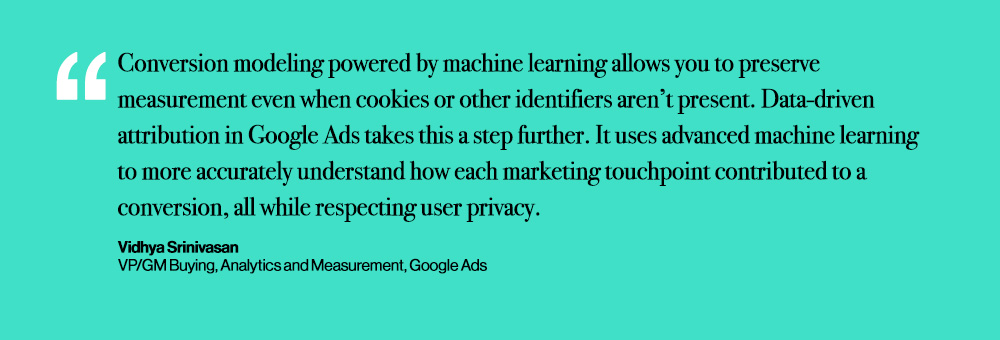
Google recently confirmed they are sunsetting Universal Analytics (UA) and Universal Analytics 360 products and replacing them with Google Analytics 4 (GA4).
This is a big change. We want to prepare you for the move to GA4, so you can minimize interruption to your analytical data and maximize the value of new GA4 capabilities to your business.
The good news is GA4 offers flexibility to measure many kinds of data, delivering strong analytics designed for future growth. But this is not a minor, “flip-the-switch” update; it significantly changes how you launch, monitor, optimize, and report on your campaigns. Migrating to GA4 will impact your data analytics and requires a plan to transition your analytics in a meaningful way.

Why is Google requiring this change to GA4?
According to Google, the current Universal Analytics (UA) products were designed for an era where desktop sessions dominated, and third-party cookies drove most tracking strategies.
This measurement methodology is quickly becoming obsolete. As we move to a cookieless digital era and mobile search continues to outpace desktop devices, the Universal Analytics framework becomes less relevant by the hour. GA4 is UA’s hip younger sibling, designed to address today’s measurement and reporting needs for digital campaigns on Google platforms.
GA4 operates across platforms, does not rely exclusively on cookies, and uses an event-based data model (rather than UA's session-based model) to deliver user-centric measurement.
What is going away with the sunsetting of UA and UA360?
- Familiar interfaces
- Canned report capabilities
- Bounce rate metrics
- Session-based tracking
- Filters
What is new with GA4?
- Simpler data models
- Event parameters for deeper insights
- Cross-device event-based data
- User properties to enrich user data
- A superior built-in debugging tool
- New data controls for improved user privacy
- Machine learning to counter cookie deletion
What's the timeline for this change?
There are two important dates to know. On July 1, 2023, UA will stop collecting data from hits. On October 1, 2023, GA360 will stop collecting data from hits. If you have not migrated to GA4 by these dates, you will not have any new tracking of website traffic and events.
The general timeline is as follows:
- Now through July 2022 - Plan for GA4 conversion, implement GA4 tracking and build out conversion events
- July 1, 2022 - Deadline to have GA4 implemented to have a full year's worth of comparative data collection between UA and GA4
- July 1, 2023 - UA stops processing hits.
- October 1, 2023 - GA360 stops processing hits in UA360
- January 1, 2024 (approx) - Reporting/read-only access removed
What are the benefits of GA4?
According to Google’s announcement, GA4 will bring several key differences:
Holistic picture of the customer journey
GA4 uses event-based measurement to present data across platforms over multiple sessions. That’s powerful. For example, if you have both a website and a mobile app, GA4 data can identify any disconnects in the user experience. From there, your digital properties can be optimized to improve funnel engagement and increase conversion rates to get desired performance.
Better attribution of cross-platform customer behavior
The new GA framework uses data from your account to determine which keywords, ads and campaigns have the greatest impact on your business goals. Data-driven attribution will credit more than just the user’s most recent clicks for more intelligent optimization insights and opportunities.
Deeper insights and better first-party data
Instead of relying on third-party cookies, the cookieless tracking of GA4 will generate more sophisticated first-party data with deeper insights than previous cookie-based models.
Better user privacy
GA4 will not store IP address information. This is good news for clients with heavy privacy restrictions or brands concerned with compromising user data. Google campaigns can now support greater trust between advertisers and audiences with assurance that IP addresses remain anonymous.
Maximum data value via predictive insights
GA4 leverages Google’s industry-leading machine learning capabilities to offer predictive insights into audience behavior and likely conversion activity. This provides all the necessary information to prioritize specific audiences and double-down on serving ads to those who are most likely to engage.
Learn more about GA4 vs UA metrics.
What are next steps?
Even though the UA sunset date in summer 2023 feels far away, the time to act is now. To maximize the most value from GA4, and have a solid base of year-over-year comparative data before UA stops collecting hits, we are advising clients to implement GA4 on their analytics accounts as soon as possible.
If you are planning to do this yourself, a robust conversion plan will include these tasks:
- Implement GA4 tracking codes
- Build out conversion events
- Evaluate key dependencies on UA
- Benchmark differences between UA and GA4
- Build reporting and resolve dependencies on UA
- Migrate key sources of truth to GA4
- Retrieve and archive UA data as needed
Don't wait to plan for this change. Analytics and a strong data foundation are business critical. If you need any level of assistance with this migration, from consulting to full implementation, we’re a Google Partner with strong knowledge of both UA and GA4, and we’ll be happy to help. Review our GA4 Setup and Migration info sheet, and then reach out. Let’s talk about a GA4 migration plan for your business.
